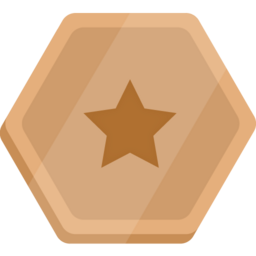David Gilmore
Jest członkiem od 2023
Liga brązowa
205 pkt.
Jest członkiem od 2023

This course introduces Vertex AI Studio, a tool to interact with generative AI models, prototype business ideas, and launch them into production. Through an immersive use case, engaging lessons, and a hands-on lab, you’ll explore the prompt-to-product lifecycle and learn how to leverage Vertex AI Studio for Gemini multimodal applications, prompt design, prompt engineering, and model tuning. The aim is to enable you to unlock the potential of gen AI in your projects with Vertex AI Studio.
This course teaches you how to create an image captioning model by using deep learning. You learn about the different components of an image captioning model, such as the encoder and decoder, and how to train and evaluate your model. By the end of this course, you will be able to create your own image captioning models and use them to generate captions for images
This course introduces you to the Transformer architecture and the Bidirectional Encoder Representations from Transformers (BERT) model. You learn about the main components of the Transformer architecture, such as the self-attention mechanism, and how it is used to build the BERT model. You also learn about the different tasks that BERT can be used for, such as text classification, question answering, and natural language inference.This course is estimated to take approximately 45 minutes to complete.
This course will introduce you to the attention mechanism, a powerful technique that allows neural networks to focus on specific parts of an input sequence. You will learn how attention works, and how it can be used to improve the performance of a variety of machine learning tasks, including machine translation, text summarization, and question answering. This course is estimated to take approximately 45 minutes to complete.
This course gives you a synopsis of the encoder-decoder architecture, which is a powerful and prevalent machine learning architecture for sequence-to-sequence tasks such as machine translation, text summarization, and question answering. You learn about the main components of the encoder-decoder architecture and how to train and serve these models. In the corresponding lab walkthrough, you’ll code in TensorFlow a simple implementation of the encoder-decoder architecture for poetry generation from the beginning.
This course introduces diffusion models, a family of machine learning models that recently showed promise in the image generation space. Diffusion models draw inspiration from physics, specifically thermodynamics. Within the last few years, diffusion models became popular in both research and industry. Diffusion models underpin many state-of-the-art image generation models and tools on Google Cloud. This course introduces you to the theory behind diffusion models and how to train and deploy them on Vertex AI.
Aby zdobyć odznakę umiejętności, ukończ szkolenia Introduction to Generative AI, Introduction to Large Language Models i Introduction to Responsible AI. Zdaj test i pokaż, że rozumiesz podstawowe koncepcje związane z generatywną AI. Odznaka umiejętności to cyfrowa odznaka wydawana przez Google Cloud, która potwierdza Twoją wiedzę o produktach i usługach Google Cloud. Ustaw swój profil jako publiczny i dodaj odznakę umiejętności do profilu w mediach społecznościowych, aby pochwalić się swoim osiągnięciem.
Celem tego szybkiego szkolenia dla początkujących jest wyjaśnienie, czym jest odpowiedzialna AI i dlaczego jest ważna, oraz przedstawienie, jak Google wprowadza ją w swoich usługach. Szkolenie zawiera także wprowadzenie do siedmiu zasad Google dotyczących sztucznej inteligencji.
To szybkie szkolenie dla początkujących wyjaśnia, czym są duże modele językowe (LLM) oraz jakie są ich zastosowania. Przedstawia również możliwości zwiększenia ich wydajności przez dostrajanie przy użyciu promptów oraz narzędzia Google, które pomogą Ci tworzyć własne aplikacje korzystające z generatywnej AI.
Celem tego szybkiego szkolenia dla początkujących jest wyjaśnienie, czym jest generatywna AI oraz jakie są jej zastosowania. Szkolenie przedstawia również różnice pomiędzy tą technologią a tradycyjnymi systemami uczącymi się, a także narzędzia Google, które pomogą Ci tworzyć własne aplikacje korzystające z generatywnej AI.